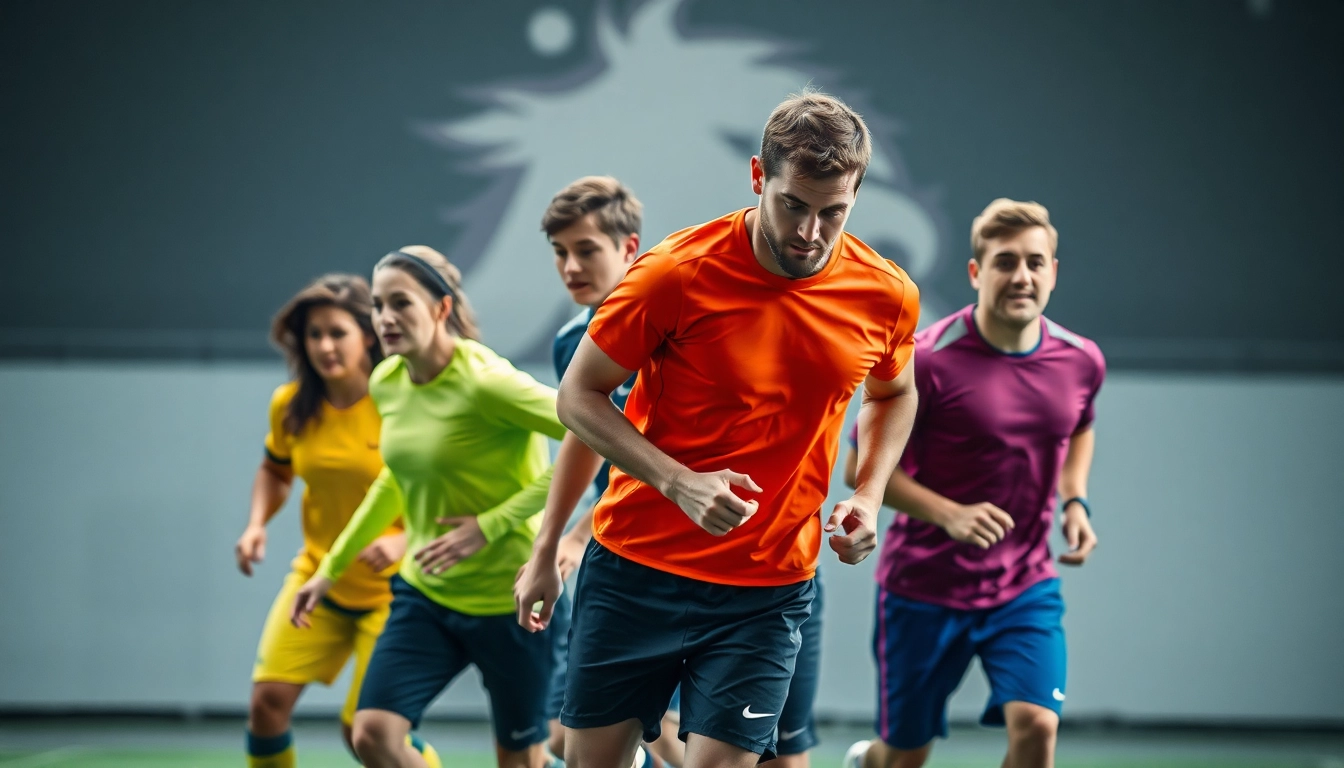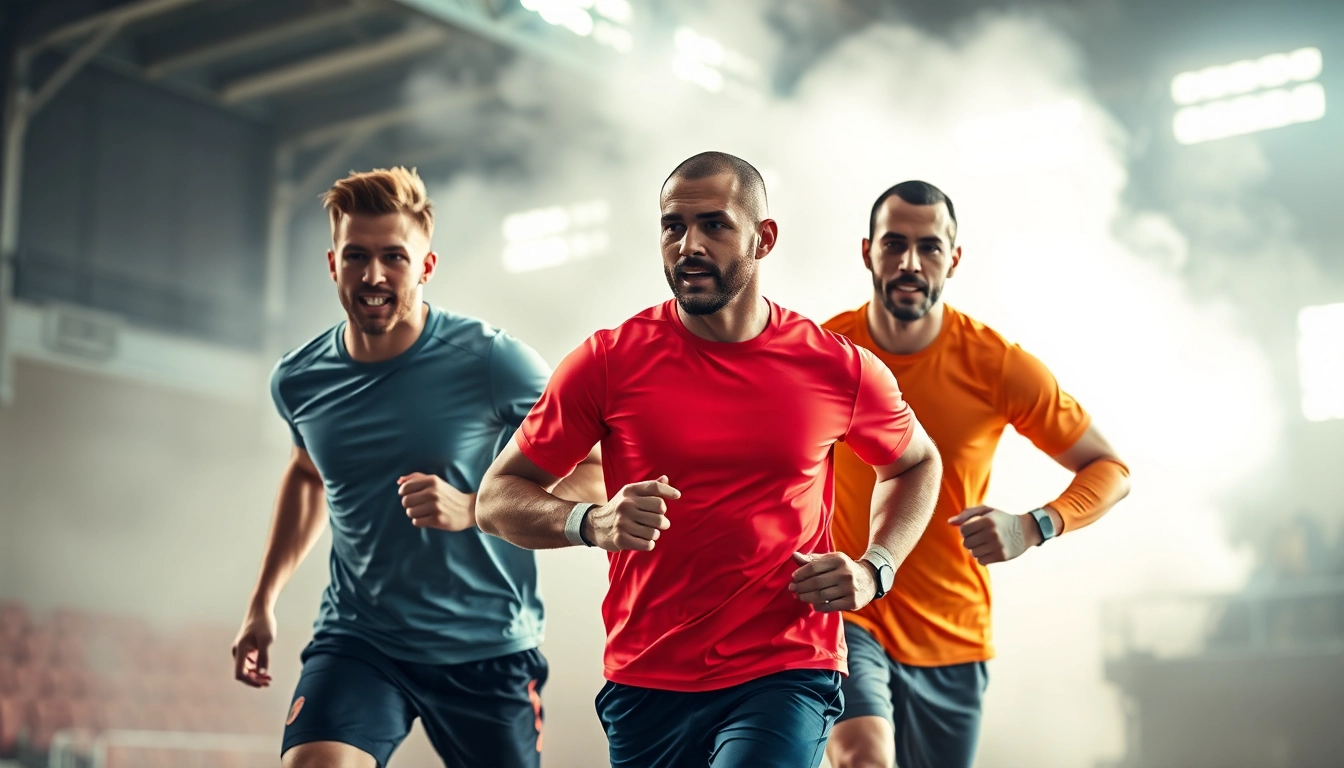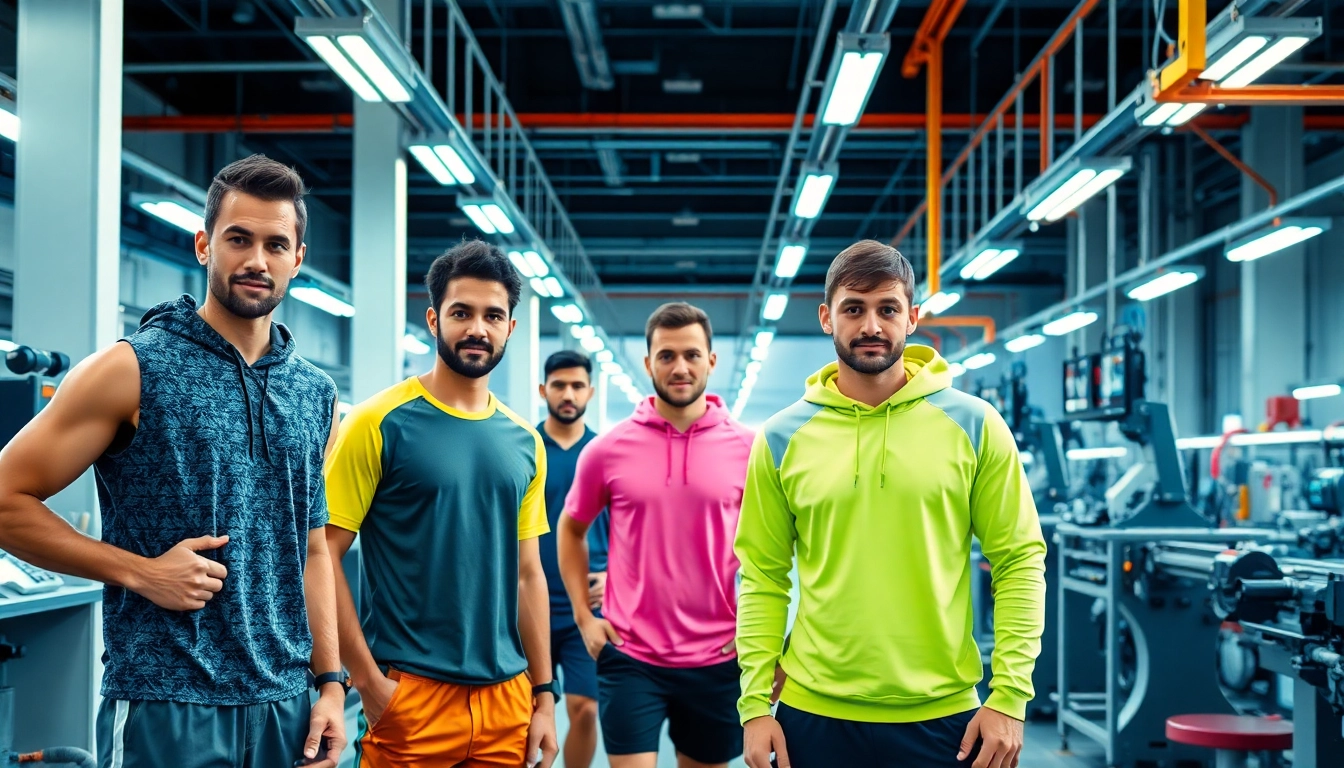Understanding the Role of Sportswear Manufacturers in the Sports Industry
In the dynamic world of sports, athletes, teams, and fitness enthusiasts rely heavily on high-performance, durable, and innovative apparel to enhance their performance and comfort. Central to this industry are Sportswear Manufacturers — the entities responsible for designing, producing, and delivering the apparel that athletes trust worldwide. These manufacturers serve as the backbone of the sports industry, bridging the gap between technological innovation and consumer demand. Their role extends beyond simple garment production; they are innovators, collaborators, and quality assurance agents that influence market trends, athlete performance, and brand reputation.
What Defines a Top Sportswear Manufacturer?
A top-tier sportswear manufacturer distinguishes itself through a combination of factors including technological expertise, manufacturing capabilities, industry reputation, and ability to customize products. Not only do these companies produce high-quality apparel, but they also foster long-term relationships with clients by adhering to deadlines, maintaining competitive pricing, and prioritizing innovation. For example, leading manufacturers in Pakistan such as Janletic Sports and Extreme Sportswear exemplify the ideal qualities of reliability, customization, and competitive pricing in the global sportswear market.
Key Features of High-Quality Sports Apparel
High-quality sportswear must combine functionality, durability, and comfort. Key features include advanced moisture-wicking fabrics that keep athletes dry, breathable materials for temperature regulation, and ergonomic cuts for enhanced mobility. Additionally, durability is critical; apparel must withstand rigorous training and competition conditions. Cutting-edge manufacturers incorporate technologies like anti-odor fabric treatments and UV protection to meet modern consumer demands. Integration of sublimation printing and flexibility in design options further elevates product quality, making the apparel not just functional but also aesthetically appealing.
Market Trends and Consumer Preferences
The sportswear industry is continually evolving, driven by consumer demand for sustainable, multifunctional, and visually striking apparel. The rise of athleisure—combining athletic and casual wear—has shifted market preferences toward comfort-oriented fashion that can be worn in multiple settings. Sustainability is also a major trend, with manufacturers adopting eco-friendly fabrics and manufacturing processes to reduce environmental impact. Data indicates that consumers are increasingly favoring brands that demonstrate transparency and social responsibility, pushing manufacturers toward greener practices and certifications.
How to Choose the Right Sportswear Manufacturer
Factors to Consider: Quality, Customization, Price
Selecting the ideal sportswear manufacturer requires a detailed evaluation of several critical factors. Quality remains paramount; suppliers should demonstrate adherence to international standards such as ISO, ISO 9001, or local certifications that ensure consistent product quality. Customization capabilities are equally vital, especially for brands seeking unique designs or team uniforms. Competitive pricing must be balanced against quality; the most affordable manufacturer may deliver subpar products, whereas premium pricing should correspond with superior technological features and durability. It’s essential to conduct a comprehensive cost-benefit analysis tailored to your production volume and long-term goals.
Evaluating Manufacturer Certifications & Capabilities
A thorough review of a manufacturer’s certifications provides insight into their operational standards and quality control measures. Certifications like ISO 9001, Sedex, or Oeko-Tex indicate adherence to environmental and social compliance. Capabilities such as fabric innovation, sampling turnaround time, and capacity for large or small order quantities should be assessed through direct communication or on-site visits. Leading manufacturers in Sialkot, Pakistan, for instance, often showcase their certifications and capabilities on their websites, reflecting their commitment to quality and transparency.
Requesting Samples and Reviewing Portfolios
Before committing, it’s advisable to request samples to evaluate fabric quality, stitching, fit, and overall craftsmanship firsthand. Reviewing the manufacturer’s portfolio or previous client work, including case studies for sports teams, clubs, and brands, offers additional validation. An attentive review allows your team to assess whether the manufacturer’s aesthetic aligns with your brand and whether their technical specifications meet your performance requirements.
Custom Sportswear Production Process
Design & Fabric Selection
The journey begins with collaborative design discussions where your brand vision, team logos, and design elements are integrated. Advanced manufacturers offer digital design tools and assist in fabric selection, balancing performance requirements with aesthetics. Options include high-tech synthetic blends for moisture management or eco-friendly natural fibers for sustainability. The choice of fabric significantly influences wearability, longevity, and athlete comfort.
Manufacturing & Quality Control
The manufacturing phase encompasses pattern making, cutting, sewing, and finishing. Quality control is embedded at every step, with checks for stitching accuracy, fabric integrity, and color consistency. Leading firms employ automated sewing machines and rigorous inspection protocols to maintain standards. Utilizing technologies like 3D body scans and CAD software ensures precise fit and reduces waste, ultimately increasing efficiency and product accuracy.
Order Fulfillment & Delivery
Once production is complete, logistics arrangements become critical. Reliable manufacturers develop comprehensive supply chain strategies, offering options such as air freight for urgent needs or sea freight for bulk orders. Transparency in lead times, customs clearance, and tracking enhances client confidence. Effective communication throughout this phase ensures on-time delivery, which is crucial for team uniforms and event-specific apparel.
Emerging Technologies in Sportswear Manufacturing
Innovative Fabrics & Performance Enhancements
The integration of emerging fabrics, such as graphene-infused textiles or phase-change materials, significantly boosts performance attributes like injury prevention and temperature regulation. Manufacturers are leveraging nanotechnology to produce fabrics that resist microbial growth, enhance durability, and reduce odor buildup. These innovations provide athletes with an edge and extend the lifespan of their apparel.
3D Design & Rapid Prototyping
Technologies like 3D body scanning and computer-aided design (CAD) allow manufacturers to create precise prototypes rapidly. This accelerates the development cycle and provides clients with virtual samples for review before mass production. Rapid prototyping reduces waste, minimizes costs, and ensures the final product aligns perfectly with specifications.
Sustainable Manufacturing Practices
Environmental consciousness is reshaping the industry. Manufacturers are adopting eco-friendly fabrics like recycled polyester and organic cotton, reducing water and chemical use in production. Certifications such as GOTS (Global Organic Textile Standard) and OEKO-TEX demonstrate commitment to sustainability. Modern manufacturing also emphasizes energy efficiency and waste reduction, aligning brand values with consumer expectations for responsible sourcing.
Building a Long-term Partnership with Sportswear Manufacturers
Effective Communication & Collaboration
Successful partnerships hinge on clear, consistent communication. Establishing channels for feedback, updates, and joint planning ensures mutual understanding. Regular performance reviews and direct dialogue help address challenges proactively, fostering a collaborative environment that promotes innovation and continuous improvement.
Pricing Strategies & Bulk Orders
Negotiating optimal pricing requires transparency about production costs and order volume. Long-term engagements often unlock discounts and priority scheduling. An understanding of MOQ (Minimum Order Quantities), payment terms, and potential for flexible customization options ensures both parties derive value from the partnership.
Post-sale Support & Customization Upgrades
Continued support after delivery, including warranty claims, product upgrades, and new customization options, cements long-term relationships. Manufacturers that offer ongoing innovation, such as new fabric technologies or design updates, provide clients with a competitive edge and foster loyalty.







